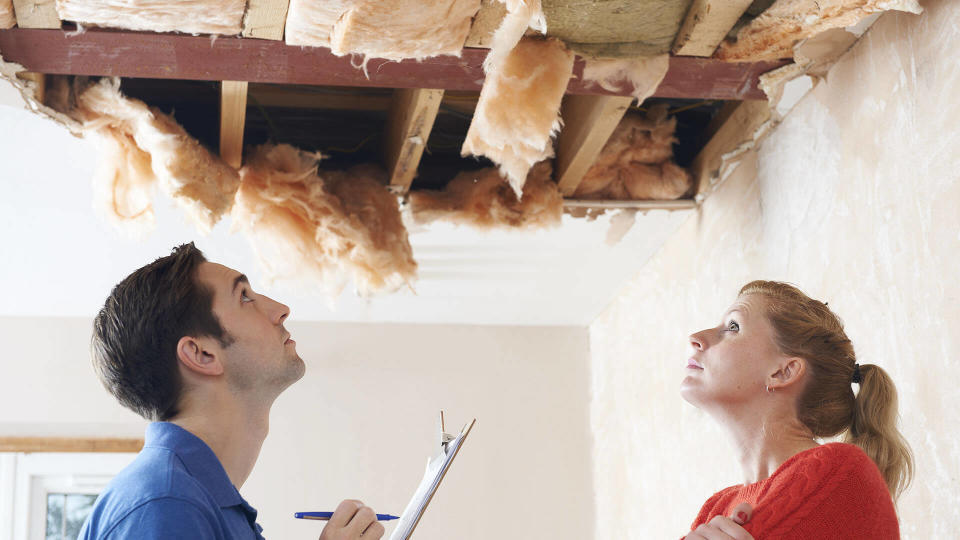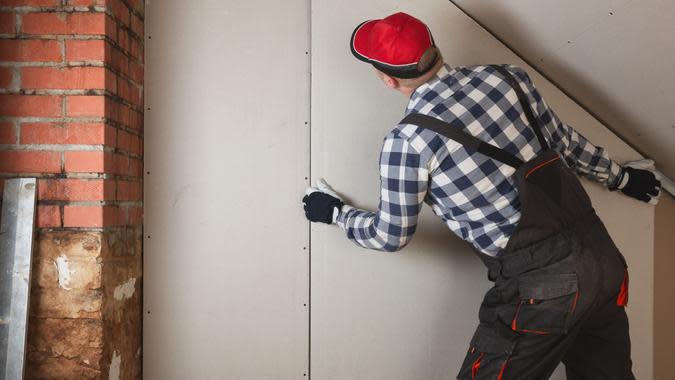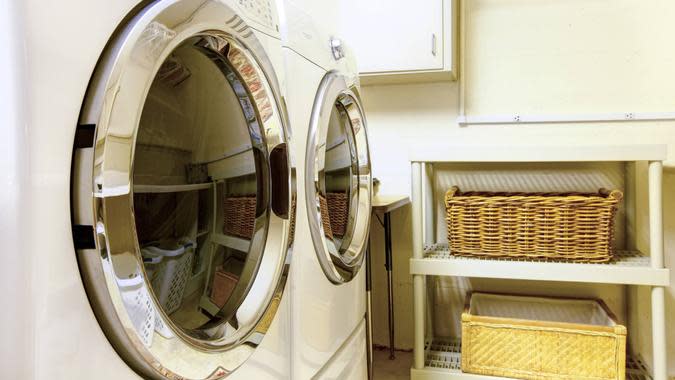7 Ways Your House Could Become a Money Pit, According to Experts

Anthony Carrino, VP of design at Welcome Homes and star of HGTV's "Kitchen Cousins," had a client in Jersey City who wanted a full-height basement with 8-foot ceilings. Carrino informed the client that there were a lot of unknowns that could make it get expensive fast.
See: Where To Use SNAP Benefits This Summer
Uber Lost and Found Index 2022: The Strangest (and Most Common) Items People Leave Behind
How deep were the foundation walls? How would they underpin the structure? Where was the bedrock?
"Still, he wanted 8-foot ceilings," Carrino said.
A few days into digging, they hit a massive blue stone rock that was so hard it bent a jackhammer bit into a J shape. Carrino pleaded with the client to leave it at seven feet, but the client wouldn't budge.
"A month and a half later, we got him his 8-foot ceilings -- to the tune of about a $30,000 change order," Carrino said.
The story illustrates just how quickly home renovation costs can soar and timelines can draw out when hidden flaws and unforeseen variables start piling up.
POLL: Do You Have a Side Gig or Other Hustle?
GOBankingRates asked the experts which projects are most likely to turn into money pits and the general rules homeowners should follow to avoid falling into them.

Old Homes Are Full of Surprises -- and Not the Good Kind
Newbies who watch a lot of home remodeling shows often make the mistake of thinking they can buy an old home in as-is shape for a bargain and put the leftover money into modernizing it. That's often easier said than done.
"Generally speaking, homes built before the 1950s used considerably fewer construction methods than expected by today's residential building codes," said Bill Samuel, real estate developer and founder of Blue Ladder Development. "This means that you will typically be required to do more work to bring the property up to current building code. In most cases, the mechanicals -- electrical, plumbing, HVAC -- on these older homes will require replacement, which can often be a surprise expense since their condition is unknown until you open the walls."

Finishing a Basement -- Especially a Leaky Basement -- Can Get Expensive Fast
Carrino is far from the only renovation pro who has run into problems down below.
"Finishing a basement can turn into a money pit," said Melanie Hartmann, owner of Creo Home Buyers in Maryland. "Particularly if waterproofing or foundation repair needs to happen and this was not properly budgeted for."
According to HomeAdvisor, the typical price range for finishing a basement is between $2,800 and $33,985, which backs up Hartmann's claims that pricing for this kind of work is painfully hard to predict.

Patching an Old Roof Again and Again Can Cost More Than a New One
Homeowners can save money by patching a failing roof instead of tearing the whole thing down and installing a new one. But, in some cases, it's actually cheaper to replace it outright.
"When patching a very old roof -- and especially one that has been patched multiple times -- roofers often find mold or other deterioration that needs to be treated," said Marina Vaamonde, owner and founder of HouseCashin. "The more you patch it, the more you simply cover up and worsen the problem. Eventually, you're going to have to replace the roof in its entirety anyway, so stop wasting the money on patching it every few years and just replace the whole thing."

Every Successful Project Starts the Same Way -- With an Inspection
Once you've set your mind to a project, you'll be driven by the urge to dive right in and get started. Don't.
"The biggest mistake homeowners make is not getting a thorough and up-to-date inspection of their entire home before embarking on light resurfacing and heavy remodeling projects," said Baron Christopher Hanson of Coldwell Banker Realty.
Over-excited and underprepared homeowners tend to jump into projects blindly, often by "peeling back layers or demolishing a wall or tearing up ugly tiles or flooring themselves," Hanson said. "Things get out of hand once leaky plumbing, rotten wood or a host of other larger home repair issues are found -- things a qualified inspector or remodeling expert would have questioned and determined up front."

More Trades Equal More Time and Money
One sure way to guess whether a project has the potential to run away with your budget and schedule is to look at the number of specialists the job requires.
"There are some good predictors of home renovation projects with the potential to turn into a money pit," said Doug Greene, owner of Signature Properties. "One is how many different trades it involves. New hardwood flooring might require a flooring contractor and a trim carpenter.
"A new kitchen could require both of those in addition to a plumber, electrician, countertop contractor, drywall and paint crew, etc. The more parties involved, the higher the chance that the cost will balloon and the entire project will take longer to complete."

Expect Trouble in Rooms With Heavy Equipment
When it comes to home renovations, not all rooms are created equal in terms of their likelihood of becoming money pits.
"In general, any room or zone in your home that includes plumbing, heavy appliances and high-voltage electricity is going to be far more costly than zero-equipment rooms and zones such as bedrooms, screened-in porches and garages," Hanson said. "Kitchens, bathrooms, utility rooms and pool areas are typically the most expensive, for obvious reasons."

Build Overruns Into Your Budget
When planning a renovation, you should hope for the best but expect the worst -- and budget with unforeseen hiccups in mind.
"A fantastic way to offset a runaway budget on a home remodel project is to bake in a 20% contingency," Greene said. "This amount allows for there to be one or two mishaps along the way without blowing the budget or timeline. And, in the end, if all goes smoother than expected, it's extra money back in your pocket for the next project."

If the Hits Keep Coming, Get Out While You Can
If a project does become a bank-draining money pit with no end in sight, homeowners might eventually have to consider cutting their losses, getting out of the house altogether and starting fresh somewhere new.
"If they are neck deep in a remodel and the price keeps increasing, they should get an appraisal of current value on that property," said Ryan Kelley, CEO of KHB Construction Inc. "If the value of the home that is being renovated is break-even or better, get out."
More From GOBankingRates
This article originally appeared on GOBankingRates.com: 7 Ways Your House Could Become a Money Pit, According to Experts
